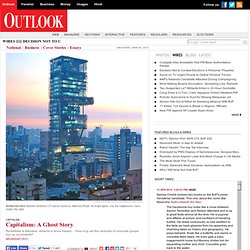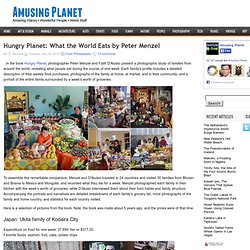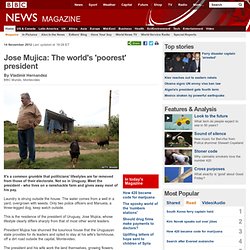

Capitalism: A Ghost Story. Is it a house or a home?

A temple to the new India, or a warehouse for its ghosts? Ever since Antilla arrived on Altamont Road in Mumbai, exuding mystery and quiet menace, things have not been the same. “Here we are,” the friend who took me there said, “Pay your respects to our new Ruler.” Antilla belongs to India’s richest man, Mukesh Ambani. I had read about this most expensive dwelling ever built, the twenty-seven floors, three helipads, nine lifts, hanging gardens, ballrooms, weather rooms, gymnasiums, six floors of parking, and the six hundred servants. But Gush-Up certainly has. The word on the street (and in the New York Times) is, or at least was, that after all that effort and gardening, the Ambanis don’t live in Antilla. Mukesh Ambani is personally worth $20 billion. RIL is one of a handful of corporations that run India.
According to the rules of the Gush-Up Gospel, the more you have, the more you can have. A whole spectrum of corruption A. But the Litfest gave us our Aha! Hungry Planet: What the World Eats by Peter Menzel. In the book Hungry Planet, photographer Peter Menzel and Faith D'Aluisio present a photographic study of families from around the world, revealing what people eat during the course of one week.

Each family's profile includes a detailed description of their weekly food purchases; photographs of the family at home, at market, and in their community; and a portrait of the entire family surrounded by a week's worth of groceries. To assemble this remarkable comparison, Menzel and D'Aluisio traveled to 24 countries and visited 30 families from Bhutan and Bosnia to Mexico and Mongolia, and recorded what they ate for a week. Menzel photographed each family in their kitchen with the week’s worth of groceries, while D’Alusio interviewed them about their food habits and family structure. Accompanying the portraits and narratives are detailed breakdowns of each family’s grocery list, more photographs of the family and home country, and statistics for each country visited.
[via Time]
Australian politics. Ron Paul on Julian Assange. Jose Mujica: The world's 'poorest' president. 14 November 2012Last updated at 19:29 ET By Vladimir Hernandez BBC Mundo, Montevideo It's a common grumble that politicians' lifestyles are far removed from those of their electorate.

Not so in Uruguay. Meet the president - who lives on a ramshackle farm and gives away most of his pay. Laundry is strung outside the house. The water comes from a well in a yard, overgrown with weeds. This is the residence of the president of Uruguay, Jose Mujica, whose lifestyle clearly differs sharply from that of most other world leaders. President Mujica has shunned the luxurious house that the Uruguayan state provides for its leaders and opted to stay at his wife's farmhouse, off a dirt road outside the capital, Montevideo. The president and his wife work the land themselves, growing flowers. This austere lifestyle - and the fact that Mujica donates about 90% of his monthly salary, equivalent to $12,000 (£7,500), to charity - has led him to be labelled the poorest president in the world.